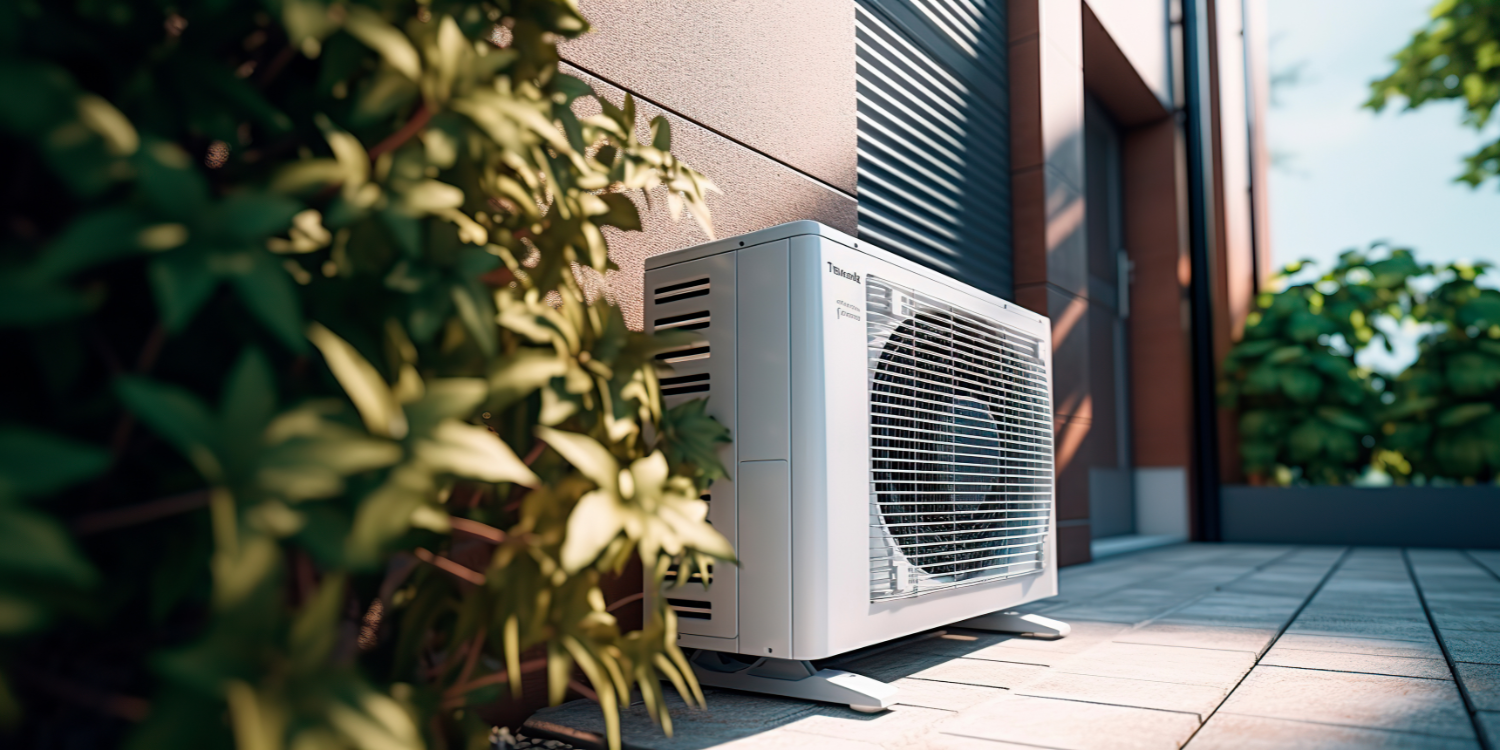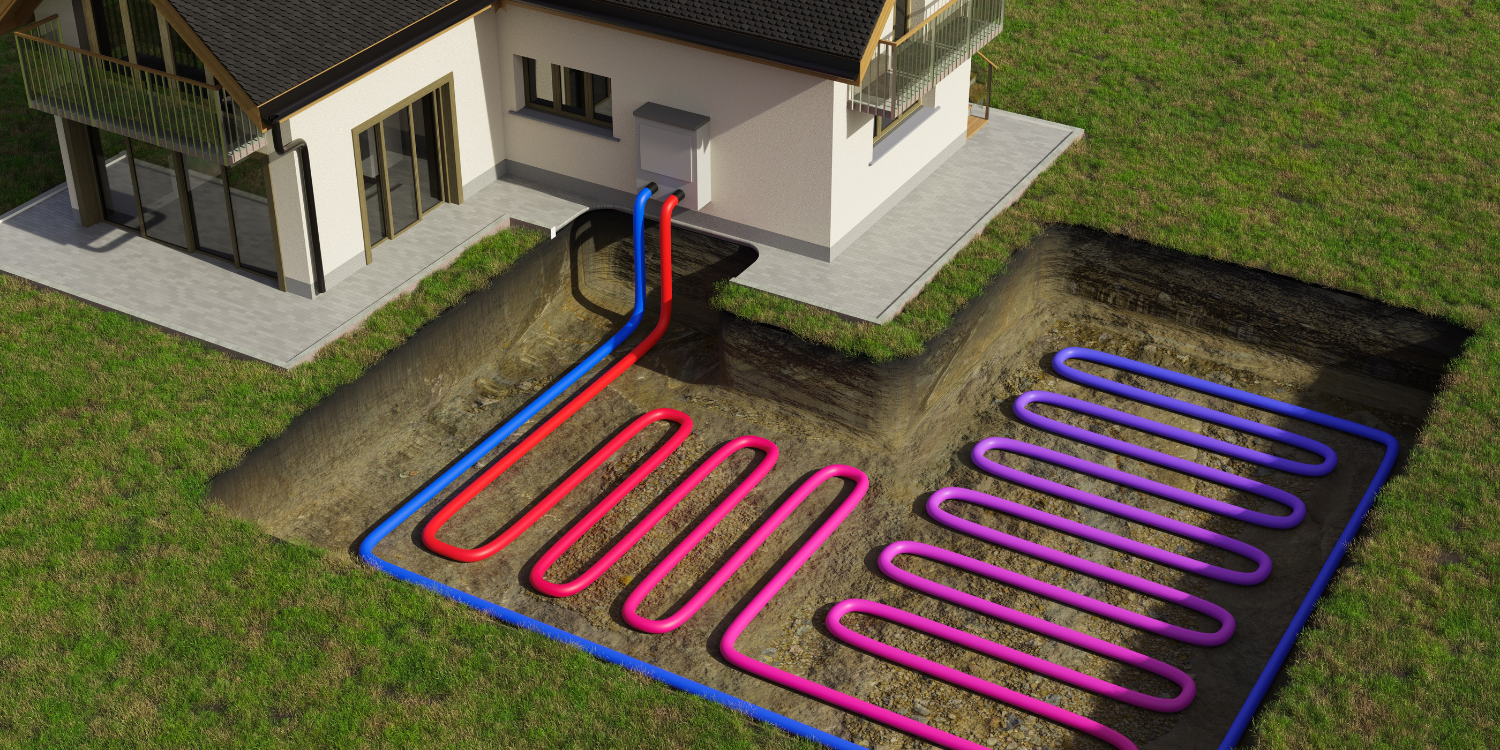Energy efficiency and sustainability are more than just buzzwords. When you choose an efficient HVAC system for your home, it will significantly impact your carbon footprint and energy bills. With so many options available, though, it can be challenging to navigate the best solutions that align with both your environmental values and comfort needs.
This guide sheds light on the most efficient and sustainable HVAC technologies. From heat pumps to hydronic heating systems, we’ll explore the benefits, workings, and considerations of each option, providing you with the knowledge needed to make an informed decision.
1. What are examples of sustainable and efficient HVAC systems?
Sustainable and efficient HVAC systems are designed to provide heating, cooling, and ventilation in a way that minimizes environmental impact and reduces energy consumption. The key to their efficiency lies in the use of renewable energy sources, advanced technology, and innovative design to deliver comfort while keeping energy use at a minimum. Here are some notable examples:
- Heat Pumps: These systems are renowned for their efficiency, particularly in mild climates. Heat pumps work by transferring heat from the air or ground outside your home into your space during winter and vice versa in summer.
- Hydronic Heating Systems: Also known as radiant heating, hydronic systems circulate hot water through pipes installed under the floor, along baseboard heaters, or through radiators to heat a space.
- Solar HVAC Systems: These systems integrate solar panels to power traditional HVAC units or work alongside them, significantly reducing electricity use from non-renewable sources.
- Geothermal Heating and Cooling: Utilizing the stable temperature of the earth a few feet below the surface, geothermal systems are highly efficient for both heating and cooling.
- Dual Fuel Systems: Combining a gas furnace with an electric heat pump, dual fuel systems automatically switch between the two energy sources based on the temperature outside.
- Smart Thermostats: While not an HVAC system in themselves, smart thermostats significantly enhance HVAC efficiency. They learn your schedule and adjust heating and cooling automatically to save energy.
2. How do heat pumps work, and why are they considered efficient?
Heat pumps are admired for their efficiency because they utilize a small amount of energy to move heat from one location to another instead of burning fuel to generate it. In the winter, they extract heat from the outside air or ground and transfer it indoors.
Conversely, in the summer, they remove heat from your home and release it outside. This process is energy-efficient and environmentally friendly, making heat pumps a preferred choice for those looking to reduce their carbon footprint and energy bills.
3. What are the benefits of hydronic heating systems?
Hydronic heating systems offer several advantages, including consistent and uniform heating, improved air quality, and energy efficiency. Since these systems heat spaces through radiating heat from floors or panels, there are no drafts or cold spots.
Using a boiler, this method is also quieter than forced-air systems and reduces the circulation of allergens, making it ideal for allergy sufferers. Additionally, hydronic systems can be more energy efficient as they allow for precise temperature control in different zones of a home.
4. How can smart thermostats help me lower my energy consumption?
Smart thermostats improve HVAC efficiency by adapting to your schedule and preferences, ensuring your system only runs when needed. They can detect when you’re away and adjust settings to save energy, and you can also control them remotely via smartphone apps. Over time, these adjustments can lead to significant savings on energy bills, and the convenience and control they offer make them a smart investment for any modern, energy-conscious home.
5. What is geothermal heating and cooling, and how does it save energy?
Geothermal heating and cooling systems tap into the earth’s stable underground temperature to heat and cool your home more efficiently than traditional systems. In the winter, they use a loop of pipes buried underground to absorb heat from the earth and transfer it indoors.
In the summer, the process reverses, removing excess heat from your home and releasing it into the ground. This constant source of energy is not only sustainable but also significantly reduces the amount of electricity needed for heating and cooling, offering long-term savings and environmental benefits.
6. What are the advantages of dual fuel systems?
Dual fuel systems combine the best of both worlds: the efficiency of a heat pump for mild weather and the powerful heating capability of a gas furnace for colder temperatures. This adaptability ensures optimal energy use by automatically switching between fuel sources based on outdoor temperature, offering both comfort and efficiency without the need to manually adjust your system.
These systems are best utilized in the colder regions of the country.
The experts at B&B ClimateCare can walk you through the sustainable and efficient HVAC systems available to you!
7. How does HVAC zoning improve energy efficiency?
HVAC zoning allows you to heat or cool only the areas of your home that are in use, which can lead to substantial energy savings. By dividing your home into zones with individual thermostats, you can avoid wasting energy on unoccupied rooms. This not only reduces your carbon footprint but also allows for customized comfort throughout your home.
8. How can I calculate the potential savings of an efficient HVAC system?
Homeowners can calculate their savings from an efficient HVAC system by comparing the system’s SEER (Seasonal Energy Efficiency Ratio) or AFUE (Annual Fuel Utilization Efficiency) ratings against their current unit’s ratings.
- First, determine the annual energy usage of your existing system based on its efficiency rating and your average usage.
- Then, calculate the annual energy usage for the new, efficient system using the same method. The difference between the two gives you the annual savings in energy consumption.
- Multiply this by your local energy cost per unit to estimate monetary savings.
Tools like online energy savings calculators can simplify this process.
9. How do I choose the right HVAC system for my home?
Choosing the right efficient HVAC system involves several key factors:
- Climate: The effectiveness of certain systems depends on your local climate.
- Home Size and Layout: Larger homes or those with multiple stories may require different solutions than smaller, single-level homes.
- Energy Efficiency Ratings: Look for systems with high SEER (for cooling efficiency) and HSPF (for heating efficiency) ratings.
- Initial vs. Long-Term Costs: Some systems have higher upfront costs but offer significant long-term savings.
- Sustainability Goals: Consider how the system aligns with your environmental values, such as reducing carbon emissions.
In summary, consider the system’s size, energy efficiency ratings (such as SEER for cooling and AFUE for heating), the climate in your area, and the sustainability of the energy source.
10. How often should sustainable HVAC systems be maintained?
Regular maintenance is key to ensuring the efficiency and longevity of any HVAC system. Sustainable systems should be checked at least once a year by a professional to ensure they are operating at peak efficiency. Additionally, simple tasks like changing or cleaning filters every few months can significantly impact performance and energy consumption.
Your Comfort, Our Planet: Let’s Make a Difference Together
Choosing the right HVAC system is not just about ensuring comfort in your home; it’s also about making a positive impact on our planet. At B&B ClimateCare, we understand the importance of both. That’s why we offer a wide range of sustainable and efficient HVAC solutions tailored to meet your needs.
Contact us today to find out more about our sustainable home comfort solutions!









